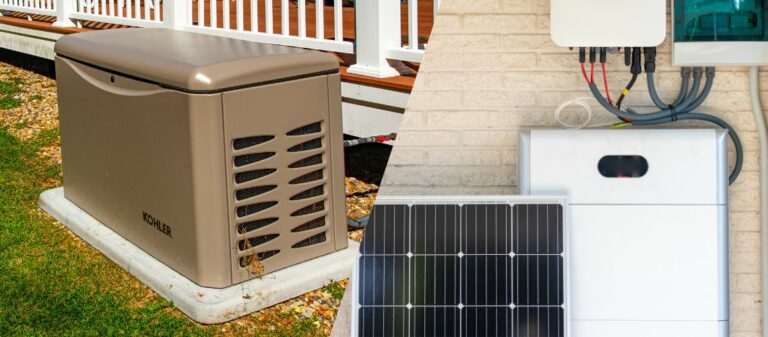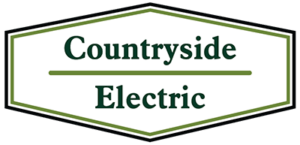Weighing the Options: Home Battery Backup Power vs. Generators

In the quest for reliable backup power solutions, homeowners often find themselves at a crossroads: choosing between home battery backup systems and traditional generators. Each option comes with its own set of advantages and considerations.
In this article, we delve into the key differences and benefits of home battery backup power and generators to help you make an informed decision based on your specific needs.
Home Battery Backup Power
Efficiency and Clean Energy:
Home battery backup systems, often integrated with solar panels, offer an efficient and environmentally friendly solution. These systems store excess energy generated during the day, allowing homeowners to harness clean power during outages or peak demand periods.
Quiet Operation:
Unlike the audible hum of generators, home battery backup systems operate silently. This not only contributes to a quieter and more peaceful environment during power outages but also aligns with the growing preference for less disruptive power solutions.
Quick Response Time:
Home battery backup power systems provide an almost instantaneous response during power outages. The transition from grid power to battery power is seamless, ensuring that your essential appliances remain powered without interruption.
Low Maintenance:
Home battery backup systems are generally low maintenance compared to generators. With fewer moving parts and no need for fuel storage or regular fuel-related maintenance, these systems offer a hassle-free backup power solution.
Generators
Versatility in Power Output:
Generators come in various sizes and power capacities, making them versatile for different applications. From small portable generators suitable for camping to large standby generators capable of powering an entire house, there’s a wide range of options to meet specific needs.
Extended Runtime:
Traditional generators, especially those connected to a fuel source, can provide extended runtime during prolonged power outages. This makes them suitable for situations where backup power is required for an extended period.
Widespread Availability:
Generators are readily available in the market, and fuel sources like gasoline, propane, and diesel are easily accessible. This makes generators a practical choice for homeowners who prioritize immediate availability and ease of use.
Cost-Effective for Short-Term Use:
For occasional power outages or situations where backup power is needed for short durations, portable generators can be a cost-effective solution. They provide the necessary power without the need for a more extensive and potentially pricier setup.
Choosing the Right Option for Your Home
Consider Your Power Needs:
Assess your household’s power requirements during an outage. If you only need to power essential devices and have a focus on clean energy, a home battery backup system might be suitable. For larger power needs, especially in extended outages, a generator could be more practical.
Evaluate Budget and Long-Term Costs:
Home battery backup systems may have a higher upfront cost, but they often come with lower long-term maintenance expenses. Generators, on the other hand, might be more budget-friendly initially but could incur higher operational costs over time.
Environmental Impact:
If reducing your carbon footprint is a priority, a home battery backup system with solar integration provides a greener solution. Generators, especially those running on fossil fuels, have a more significant environmental impact.
Consider Ease of Use and Maintenance:
Think about your comfort level with maintenance tasks and the ease of use you require. Home battery backup systems are generally user-friendly with minimal maintenance, while generators may need more hands-on attention.
The choice between home battery backup power and generators ultimately hinges on your specific needs, budget, and environmental considerations. Understanding the advantages and differences between the two options empowers you to make a decision that aligns with your priorities, ensuring that your home remains powered during unexpected outages.
If you could benefit from working with a reliable electrical contractor, click here!

